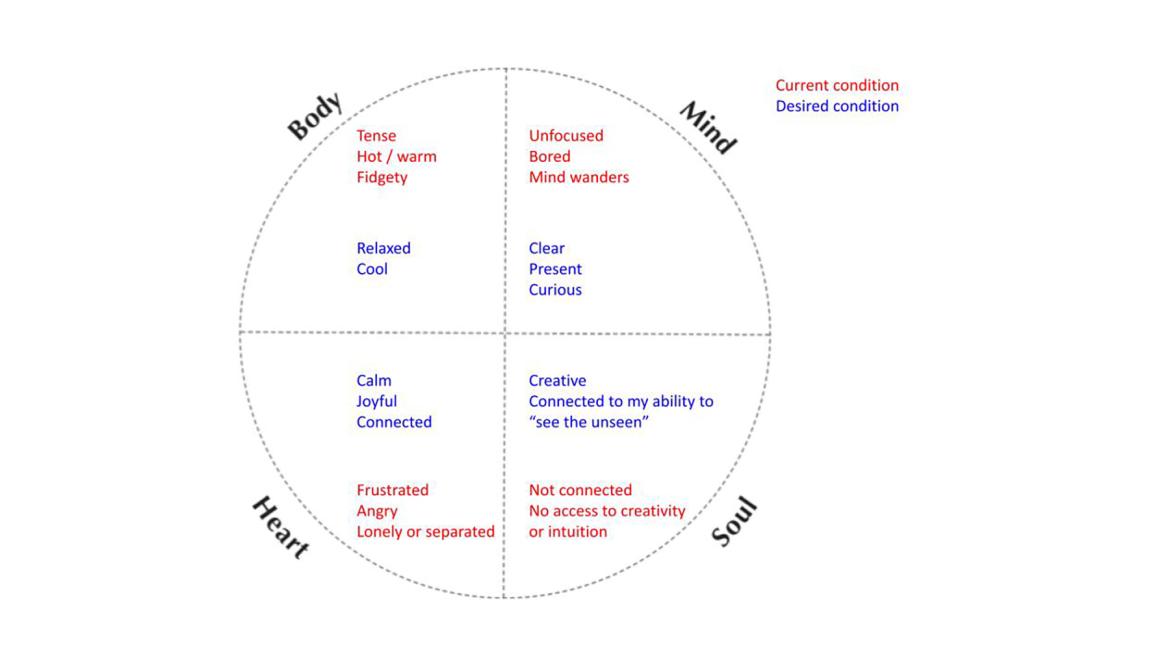In my line of work, I often find myself in strategy meetings with high-powered individuals. Even when everyone is sharp and focused, these discussions can quickly become tedious, especially when challenging topics arise. We often hesitate to express our true thoughts for fear of disagreement. In these moments, I tend to grow impatient, and when I finally get the chance to speak, I can come off as curt or even rude—definitely not my finest moments!
My practice
I used our integral nature graphic to gain clarity into what is happening for me in body, mind, heart and soul in these circumstances. In the same graph, I also wrote down how I would like to show up during these meetings. View the result of the exercise in the graphic above.
I formulated a simple strategy: Pay attention, and become aware of tension or boredom as quickly as possible. If that happens, take a breath, ground myself, and stay in the present moment for 30 seconds. Repeat as needed.
Benefit in real life
A couple of months ago, during a two-day business retreat with about a dozen colleagues, we faced a particularly hot topic in a round-robin discussion. I noticed myself getting bored; my energy was rising into my head, and my body felt tense and fidgety. Thankfully, I caught myself early, before frustration took over. I activated what I had learned in our Ki of Cooperation sessions and began asking myself questions:
From my balanced voice: What’s going on?
From my bored self: They’re all stuck on the same subtopic—this issue is much bigger, and we’re missing vital perspectives!
From my balanced voice: What perspectives are we missing?
From my bored self: I started jotting them down on a piece of paper. "Now what?"
From my balanced voice: Take a breath, ground yourself, and listen with the intention to understand. Suspend all judgments!
By tuning in more intentionally for the rest of the discussion, I discovered that many of the perspectives I had written down were brought up by others. When it was my turn, I was able to calmly share my insights, and our facilitator skillfully kept the conversation flowing until we reached a resolution—something I had thought was unlikely!
This clarity about what caused my initial imbalance allowed me to regain my composure. Thanks to the practice of the Ki of Cooperation, I’ve become more aware of the signs of imbalance and equipped with tools to address them effectively. This empowers me to quickly restore my balance and contribute more productively to the group.
